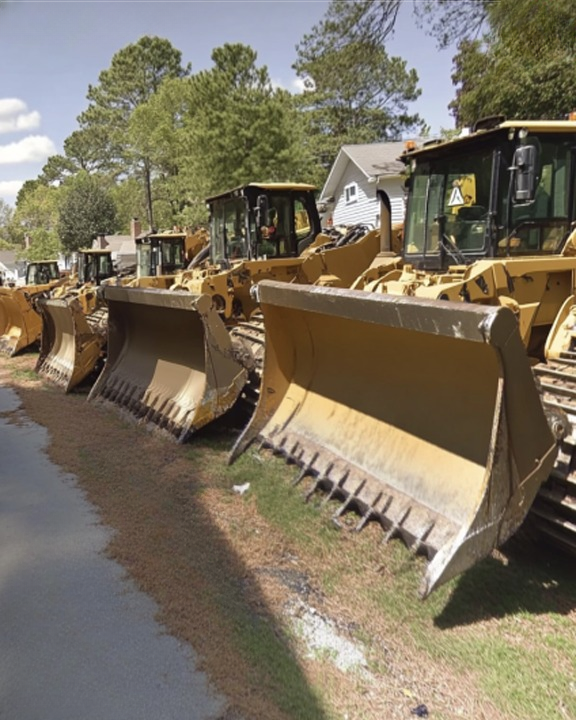
For seven long years, my neighbor and I were locked in a bitter feud over a narrow strip of land that separated our properties—a three-foot patch of grass that nearly tore our lives apart. Then, one morning, something unexpected happened: he moved his fence. No warning, no argument. Just a casual smile and a “change of heart.” At first, I believed him. But weeks later, the real reason behind his sudden “kindness” became crystal clear.
Seven years of tension had built up between Carl and me over that strip of land. It was a constant source of stress—every day began and ended with that quiet war. Court dates, angry words, legal documents—we tried everything short of physically drawing battle lines.
The city survey clearly stated the land belonged to me, but Carl clung to his belief that it was his, based on a decades-old fence and fading memories. He dismissed every piece of evidence I brought forward, telling me, “Your fancy paperwork doesn’t mean a thing.”
By the third year, we were knee-deep in lawyers. By year four, I was collecting inspection reports and photos. When I tried to plant a polite row of shrubs along the boundary, Carl mowed them down like they were weeds. His denial was relentless.
The fifth year brought a court hearing. Carl arrived with binders full of old photos and maps, trying to convince the judge with nostalgia instead of facts. Nothing came of it—just delays and mounting frustration.
By year six, I was exhausted. The feud had become a fixture in my life. I stopped trying to fight. I avoided eye contact when he was outside watering his perfect lawn. We lived in a constant, silent standoff.
Then came year seven.
It was a chilly March afternoon when I came home and noticed it. The fence had been moved—three feet back, toward Carl’s house. Onto the very land he’d insisted was his for years. I stared, stunned. Carl casually emerged from his garage, wiping his hands on a rag.
“Noticed the fence, huh?” he said, smiling.
“You moved it,” I said slowly.
“Sure did. Figured it was time to let things go,” he replied.
It sounded too easy. Too good to be true. But I wanted peace, so I said nothing more. I let myself believe that maybe, just maybe, people really could change.
I planted flowers. Added a bench. For the first time, that stretch of land felt like mine. Even the neighbors complimented it.
But something didn’t sit right.
Carl wasn’t the type to give in. His sudden surrender didn’t match the years of stubborn resistance. My gut kept whispering that there was more to the story.
Then came the rain.
In the early hours of the morning, I was startled awake by a loud, mechanical hum beneath the sound of pouring rain. I looked outside and saw it—six massive construction trucks lined up in Carl’s driveway. Men in reflective vests moved with purpose.
I stepped outside and asked what was happening. One of them smiled and said they were accessing a utility line that ran under the strip of land next to my house. They had clearance. The paperwork had been approved just last week.
Right where I’d just planted marigolds.
That’s when it hit me. Carl hadn’t moved the fence to make peace—he moved it to clear space for construction. The utility line had been too close to his original boundary. By backing off, he pushed the issue onto my property.
And there he stood, arms folded, watching it all unfold with a smug grin.
But I wasn’t caught off guard—not completely.
Three months earlier, I had seen Carl pacing with rolled-up papers tucked under his arm—blueprints, zoning documents. I’d quietly checked the city records and discovered his permit application for a massive garage expansion. And I noticed something—it violated setback codes and encroached on the utility easement.
So I filed a quiet complaint. No drama, just facts. The city flagged it for review.
And now? Less than two days into the project, city inspectors arrived. After a quick inspection, the site was shut down. Red tape lined the driveway, and a bold sign read: UNAUTHORIZED WORK – STOP ORDER.
The trucks packed up and left. No explanation. No apology.
Carl didn’t say a word. He disappeared into his garage and never brought up the fence—or the land—again.
Months passed. The red tape faded. The construction site remained untouched, a scar in his driveway. Carl kept his distance. We no longer fought—we just coexisted.
And me? I reclaimed that little patch of earth. I planted lavender, roses, and placed the bench in the center. Most mornings, I sit there with a cup of coffee, sunlight on my face, listening to the birds and enjoying a silence that no longer feels tense.
The battle, it turned out, was never really about land. It was about control. About peace. And in the end, I won—not by shouting, but by standing my ground.
Carl tried to win through strategy. I won through patience.
Now, every time I sit on that bench, I smile. Because I finally have peace. And the best seat on the block to enjoy it.